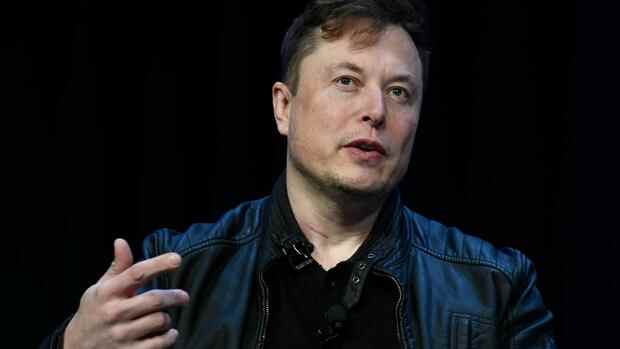Dusseldorf A takeover of Twitter by Tesla boss Elon Musk is within reach. According to US media reports, an agreement could be reached on Monday. The short message service is ready to accept the offer of 54.20 dollars per share from the Tesla boss, reports the news agency Reuters. The board of directors still has to meet to recommend the transaction to Twitter shareholders.
However, failure at the last minute is still possible. The stock gained around five percent premarket on Monday to $51.20.
According to the Wall Street Journal, the billionaire met with Twitter officials on Sunday to discuss his $43 billion offer. The meeting marks a reversal.
So far, Twitter has resisted the offer and, among other things, used a so-called “poison pill”. This measure allows other shareholders to purchase additional shares at a discount if an individual or group acquires at least 15 percent of Twitter’s outstanding common stock without board approval. That would make it more difficult for the attacker to take over.
Top jobs of the day
Find the best jobs now and
be notified by email.
According to the Wall Street Journal, there were still a few controversial points, such as the amount Musk would have to pay if a takeover didn’t go through – a common safeguard in such deals. Nevertheless, the rethinking of the board of directors and board of Twitter makes sense for three reasons:
1. The stock market environment has deteriorated
Musk announced his offer on April 14. Since then, the tech-heavy Nasdaq index has fallen eight percent, largely on the prospect of rising US interest rates. Over the same period, Twitter stock rose by roughly the same percentage.
The comparison is even more drastic if you take the announcement of Musk’s entry into Twitter as a major shareholder more than three weeks ago as a point of comparison. Since then, the stock has soared a fifth, while the Nasdaq index has fallen nearly 15 percent.
The Twitter board of directors must take Musk’s threat very seriously. It was his “best and final” offer, he said when the takeover price was announced and a few days ago to Twitter chairman Bret Taylor.
If Twitter rejects his offer, the price should fall sharply. That hurts all the more because the stock, unlike other tech stocks, hasn’t moved in recent years. It is currently trading at the same level as in 2014.
Another appealing reason for Twitter: the takeover is said to be in cash. So the shareholders don’t get shares from another company, which is more attractive in uncertain times on the stock markets.
2. Elon Musk has secured his funding
Initially, there was criticism of the cloudy structure of the offer: Musk only published $54.20 per share, but there was no detailed financing plan. Musk is the richest person in the world with an estimated fortune of $260 billion. However, a large part of it is in shares in the electric car manufacturer Tesla and in shares in the space company SpaceX.
Both assets have limited liquidity, for example SpaceX is not publicly listed.
But last Thursday, Musk made up for lost time and presented details of the financing. Numerous banks have promised him loans totaling $25.5 billion for the deal, with Musk’s shares in Tesla and SpaceX serving as security. The 50-year-old contributes $21 billion.
>> Read also: Elon Musk has secured $46.5 billion in financing to buy Twitter
At the same time, Musk launched a charm offensive with selected Twitter shareholders and explained his offer in video conferences with major shareholders, including fund companies such as Vanguard and Blackrock.
3. A “white knight” will probably not come
Typically, a takeover bid triggers the interest of competitors or other investors. Twitter could therefore hope for a so-called “white knight”. In fact, private equity firms such as Apollo and Thoma Bravo have signaled interest in Twitter in recent days. However, so far there has been no offer.
Could that change? A look at Musk’s financing plan probably only allows the answer: no. Almost all well-known investment banks want to give the Tesla boss money for the deal. Industry giants like JP Morgan are only missing because they already advise Twitter. That makes sense: If Apollo had prepared a deal, at least some banks would not have participated.
That also fits with the takeover details: Musk is paying nearly nine times Twitter’s revenue. A high price for a company that, despite numerous attempts in the past, has not been able to really grow strongly.
So far, Musk has not shown any real way out of the dilemma with new proposals. His idea of giving users special privileges for a monthly subscription fee met with great skepticism from analysts.
This service would be used primarily by heavy users who, according to Wells Fargo, generate an average of $66 per year in revenue from Twitter, for example through advertising. According to analyst Brian Fitzgerald, the service should cost at least six dollars a month: “That’s a price that is not so easily accepted.”
More: Tesla increases profit by almost 660 percent – but the Shanghai lockdown is a burden
